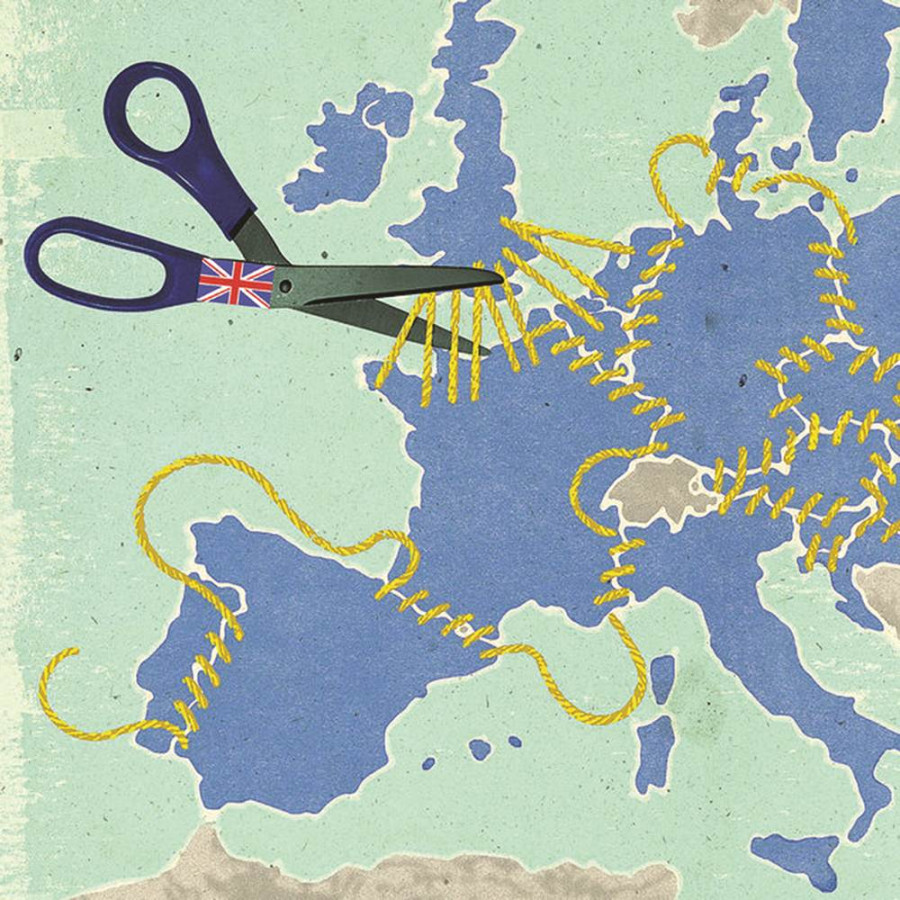Opinion
Against economic colonisation
Brexit was a bold decision and an essential step towards global liberation
Bigyan Prasai
The British people have given their verdict. To some, the result of the EU referendum may look as though Britain has been swayed by xenophobic tendencies and that it signals a disastrous world order.
But to me, the verdict has in fact liberated not only the UK and Europe, but also other developing countries from the grip of the super ambitious elites, who were in the process of creating a ‘super nation’. The verdict is the product of hyper-globalisation undermining national interests.
It is now crystal clear that the wave of nationalism is sweeping the globe—Brexit in Europe, the rise of Donald Trump in the US, the election of a Hindu nationalist party in India, the assertion of nationalist symbols in South Asia, including Nepal.
The wave of neo-nationalism in the context of globalisation should not be viewed as anti-globalisation but as a step towards managed globalisation. The present reality requires a paradigm shift in managing global issues such as climate change, terrorism, cross border security, immigrants, cyber attacks, pandemics and global financial meltdown, among others. There is certainly a greater need for international cooperation in this interconnected and interdependent world, but cooperation in the form of a ‘superpower block’ is not the solution. Brexit does not mean walking away from international cooperation; rather it is a voice towards more equity-based global cooperation.
1955 Bilderberg meeting
The formation of superblocks working under the influence of secret organisations has given rise to the global trend of modern nationalism. These organisations have been working under the grand design of the global elites to dismantle the sovereignty of states and establish a world government. In the name of global governance, peace, security and prosperity, neo-liberal policies were introduced to open up markets and ‘the third wave of democratisation’ has penetrated national political and economic institutions. The advocates of the neo-liberal policies such as the World Bank and IMF although seem to be helping the developing countries, in reality they have been working in the interest of the Trilateral Commission, a discussion group founded to foster closer cooperation among North America, Western Europe, and Japan. The intention of these super-rich countries that influence the domestic politics of various nations is to colonise the globe with economic power. The Bretton Woods institutions like the World Bank and IMF are the instruments used to fulfil their ambition of global economic colonisation.
These global institutions, disguised under the veil of world governance, have undermined national interest and the rights of individual citizens. For example, the US-based Trilateral commission is actively engaged in influencing the global governance bodies including the World Trade Organisation. The Bilderberg Group—an annual private conference of the European and North American political elite, experts from industry, finance, academia, and the media—often makes decisions in secret meetings that impact the lives of millions. It is clear that the intention of forming the European Currency Unit was to create a central political authority, with an aim to move towards a ‘United States of Europe’. In 2009, WikiLeaks released a document from the 1955 Bilderberg conference in West Germany. The document shows that the idea of creating the Euro was being discussed within the circles of Western elites as far back as 1955, concealed from the general public of Europe. It reveals that “a European speaker expressed concern about the need to achieve a common currency, and indicated that in his view this necessarily implied the creation of a central political authority.”
The global elite Thus, in the name of global governance, a grand design has been plotted to create a world government. Recognising this fact, the UK had rejected the single currency and other EU proposals, which would have undermined its sovereignty and national interests. The UK is an old and mature democratic country, which believes in global equality, human rights and democracy, and cannot tolerate the monopoly of super elites to create a global government that undermines the interests of sovereign citizens.
These multilateral institutions are creating global disorder and chaos in order to generate a conducive environment for them to intervene in the internal affairs of states in the name of global peace, security and prosperity. These institutions are also creating regional alliances to intervene in different regions around the world.
David Rothkopf, in this 2008 book entitled Super class: How the rich ruined Our World, argues that an infinitely small number of super-elites run the world, completely outside of any democratic process. He writes, “A global elite has emerged over the past several decades that has vastly more power than any other group on the planet. Each of the members of this super class has the ability to regularly influence the lives of millions of people in multiple countries worldwide.”
The world should salute the bold decision made by the British people which has had an effect throughout the globe. The decision will impact the practice of world governance. Brexit is an essential step toward global liberation. The neo-nationalism sweeping the globe is in fact pragmatic, not romantic.
Prasai, a chartered certified accountant, is pursuing a master’s in Public Policy at SOAS University, London. He can be reached at [email protected]




 18.12°C Kathmandu
18.12°C Kathmandu










